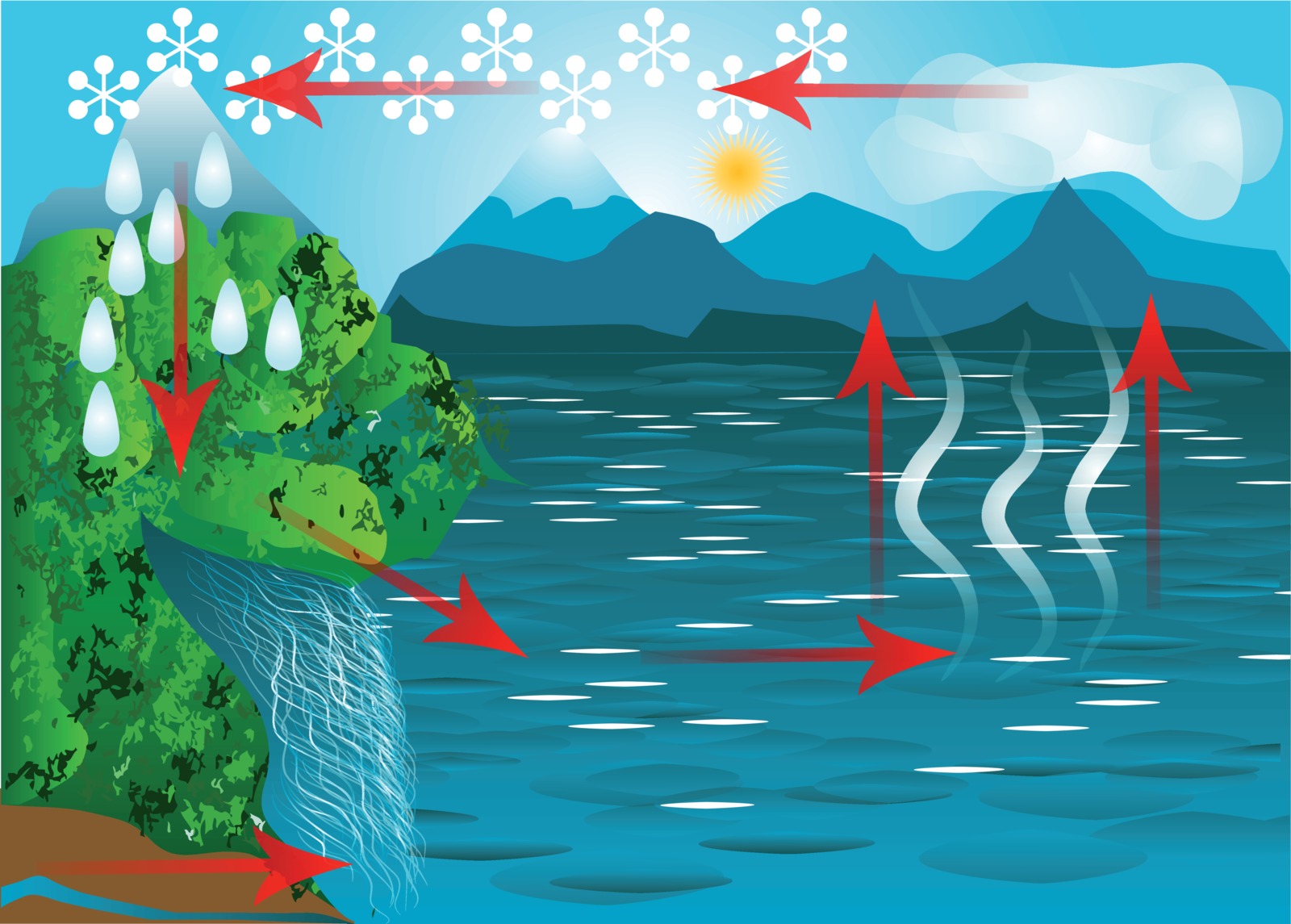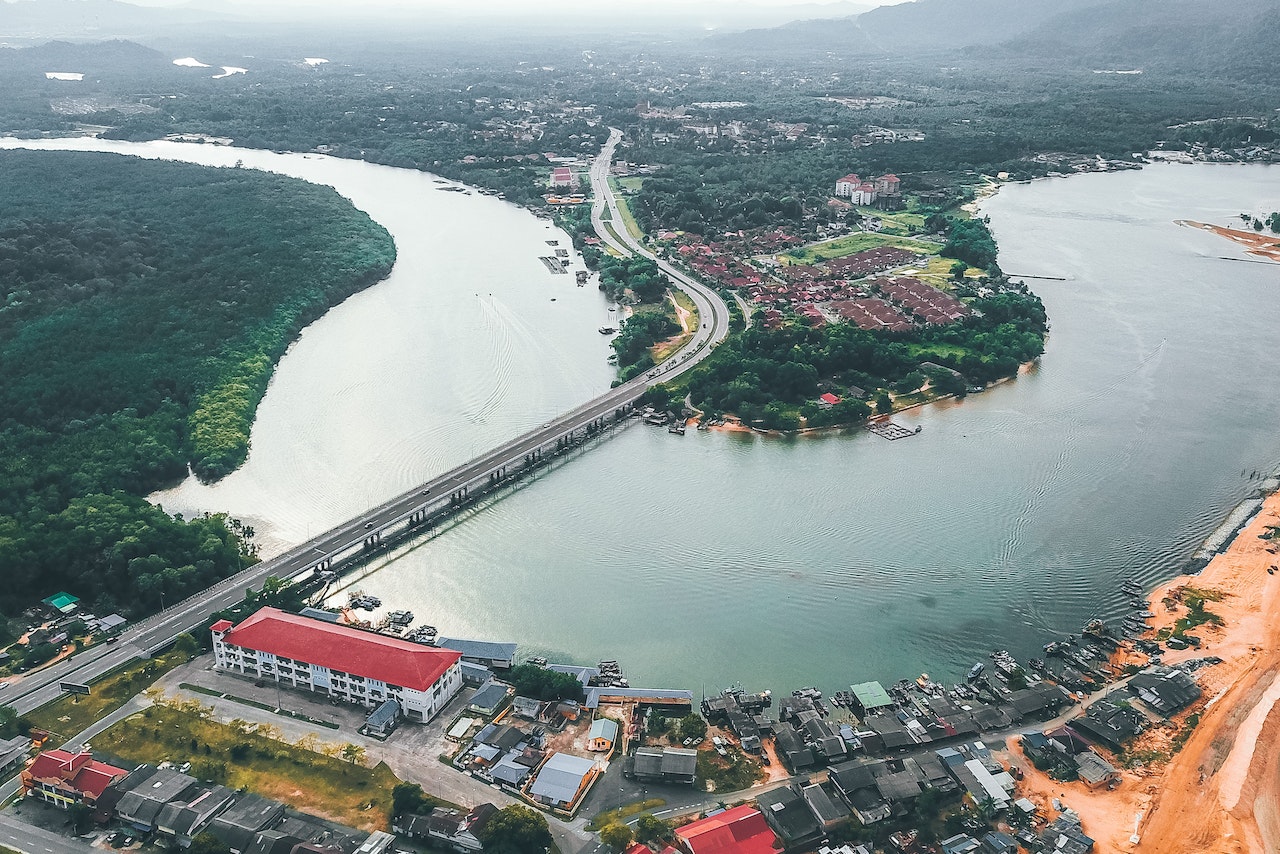Access to clean water is a fundamental necessity for human survival and well-being. The global water crisis poses significant challenges to the realization of this basic human need, thus raising questions about whether water should be recognized as a human right.
This article explores the importance of ensuring access to clean water, examines historical perspectives on water rights, and analyzes the role of governments in facilitating water access. It also discusses legal frameworks and international agreements related to water rights.
Additionally, the article examines the potential impacts of water privatization on human rights and addresses inequalities in water distribution. By considering these various aspects, it aims to inform and persuade readers about the urgent need for recognizing water as a human right.
Key Takeaways
- Access to clean water is essential for maintaining public health and preventing the spread of diseases.
- Water scarcity is linked to poverty, as access to clean water is essential for basic human needs.
- Indigenous perspectives highlight traditional systems of water governance based on sustainable management and equitable sharing.
- Government policies and regulations establish frameworks for water allocation and equitable distribution.
The Importance of Access to Clean Water
Access to clean water is essential for maintaining public health and preventing the spread of diseases. The importance of conservation and sustainable water management cannot be overstated in ensuring a reliable supply of clean water for all individuals. Conservation practices help preserve our freshwater resources by reducing waste and promoting responsible use. Sustainable water management involves implementing strategies that balance the needs of human populations with the needs of the environment, such as rainwater harvesting, wastewater recycling, and efficient irrigation techniques. By adopting these practices, we can ensure that future generations have access to this vital resource.
Transitioning into the subsequent section about ‘the global water crisis and its impact on human rights’, it is crucial to recognize that without access to clean water, basic human rights are compromised, leading to dire consequences for individuals and communities around the world.
The Global Water Crisis and Its Impact on Human Rights
The global water crisis and its repercussions on the fundamental entitlements of individuals have garnered significant attention in academic discourse. There is a clear link between water scarcity and poverty, as access to clean water is essential for basic human needs such as drinking, sanitation, and hygiene. Moreover, climate change has further exacerbated the issue by impacting water availability through changes in precipitation patterns and increased evaporation rates. This has severe consequences for vulnerable populations who rely heavily on agriculture for their livelihoods. The table below highlights some key statistics that illustrate the severity of the global water crisis and its impact on human rights:
| Statistic | Value |
|---|---|
| Number of people without access to | 785 million |
| improved drinking water sources | |
| Number of people practicing open | 2 billion |
| defecation due to lack of sanitation | |
| Annual number of deaths from | 829,000 |
| diarrheal diseases caused by | |
| unsafe water, sanitation, and hygiene |
These numbers underscore the urgent need for action to address the global water crisis and ensure that every individual’s right to clean water is upheld.
Historical Perspectives on Water Rights
Historical perspectives on water rights reveal the complex evolution of societal norms and legal frameworks surrounding water allocation and usage. Understanding the historical context is crucial for comprehending the current challenges in ensuring equitable access to water resources.
Indigenous perspectives provide valuable insights into traditional systems of water governance that have sustained communities for centuries. These perspectives emphasize the interconnectedness between humans and nature, recognizing water as a sacred resource that should be managed sustainably and shared equitably among all members of society.
By exploring historical narratives, we can appreciate how different cultures have developed their own approaches to managing water resources based on local needs, values, and knowledge systems. This understanding highlights the importance of integrating indigenous perspectives into contemporary discussions on water rights and management practices.
Transitioning to the subsequent section about ‘the role of government in ensuring water access’, it becomes evident that governments must play a central role in upholding these principles and enacting policies that prioritize universal access to clean and safe drinking water for all individuals.
The Role of Government in Ensuring Water Access
Government policies and regulations play a central role in establishing frameworks for water allocation and ensuring equitable distribution of this vital resource. Through government intervention, communities can actively participate in the management of their water resources, fostering a sense of ownership and responsibility. This involvement not only leads to more sustainable practices but also enhances the overall well-being of individuals by guaranteeing access to clean and safe water.
The following sub-lists provide a glimpse into the benefits of government involvement and community engagement:
-
Government Intervention:
-
Establishes legal frameworks for water rights and allocation
-
Implements regulations to prevent over-extraction and pollution
-
Community Involvement:
-
Encourages local participation in decision-making processes
-
Promotes education on responsible water usage
Water as a Basic Human Need
Access to clean and safe water is crucial for the well-being and survival of individuals. However, water scarcity remains a significant issue in many parts of the world, leading to severe consequences such as waterborne diseases. Lack of access to clean water not only affects hygiene but also impacts agriculture, education, and economic development. To emphasize the importance of addressing this issue, it is essential to highlight the impact of water scarcity on health. Waterborne diseases are responsible for countless deaths each year, particularly among vulnerable populations such as children and the elderly. By ensuring access to clean and safe water for all individuals, we can significantly reduce the prevalence of these diseases and improve overall public health outcomes.
| Impact of Water Scarcity | Waterborne Diseases |
|---|---|
| Hinders agricultural productivity | Increases risk of diarrhea |
| Limits educational opportunities | Causes cholera outbreaks |
| Impedes economic growth | Enhances spread of typhoid fever |
| Affects overall well-being | Contributes to malaria transmission |
Legal Frameworks and International Agreements on Water Rights
Existing legal frameworks and international agreements play a crucial role in shaping water rights and ensuring access to clean water for all. These frameworks provide a basis for defining the rights, responsibilities, and obligations of different stakeholders involved in water management.
An overview of these agreements helps to understand the global efforts made towards addressing water scarcity and promoting sustainable water use.
However, despite these efforts, enforcement challenges persist, including issues with compliance, monitoring, and coordination among various actors at both national and international levels.
Existing Legal Frameworks
Despite the complexities surrounding the legal frameworks pertaining to water, it is imperative to critically examine the effectiveness and adequacy of these established structures.
-
The existing legal frameworks for water rights are varied across countries and regions, reflecting diverse cultural, political, economic, and social contexts. These frameworks typically include legislation, regulations, policies, and institutions that govern water allocation, use, management, and protection.
-
Some countries have comprehensive water laws that outline specific rights and responsibilities related to water resources.
-
Others rely on a combination of constitutional provisions, customary practices, and common law principles.
Understanding the strengths and weaknesses of these existing legal frameworks is crucial in order to address the challenges associated with equitable access to water resources. By evaluating their effectiveness in promoting sustainable water governance and ensuring adequate provision for all individuals and communities, we can identify areas that require improvement or reform.
This examination will be further complemented by an overview of international agreements related to water rights.
International Agreements Overview
International agreements play a significant role in shaping the legal frameworks surrounding water resources management and allocation. These agreements are crucial in addressing the global challenge of water scarcity and ensuring equitable access to this vital resource.
International agreements serve as platforms for collaboration, cooperation, and coordination among countries to address common issues related to water management. Through these agreements, countries establish principles, guidelines, and standards for sustainable use and allocation of water resources. They also provide mechanisms for dispute resolution and decision-making processes on transboundary water issues. These agreements promote the integration of social, economic, and environmental considerations into water management practices.
However, despite their importance, international agreements face enforcement challenges due to various factors such as political tensions between nations, lack of funding and technical capacity, competing interests of stakeholders, and limited monitoring capabilities.
Enforcement Challenges Faced
Enforcement challenges are among the biggest obstacles faced in the implementation of policies regarding water as a human right. These challenges can hinder the effective realization of this fundamental right for all individuals.
Some key enforcement challenges include:
-
Lack of resources: Insufficient funding and limited availability of water management infrastructure can impede efforts to enforce policies.
-
Inadequate legal frameworks: Weak or outdated legislation may not provide the necessary tools to address violations and ensure compliance.
-
Limited capacity for monitoring and enforcement: A lack of trained personnel and technical capabilities can hamper the ability to monitor water use, identify violations, and take appropriate action.
Addressing these challenges requires collaborative efforts between governments, international organizations, civil society groups, and local communities. Strengthening legal frameworks, increasing investment in water infrastructure, enhancing monitoring capacities, and raising awareness about the importance of water as a human right are crucial steps towards overcoming enforcement challenges and ensuring equitable access to clean water for all.
Water Privatization and Its Impacts on Human Rights
Water privatization has been a subject of concern due to its potential impacts on human rights. In regions experiencing water scarcity, the privatization of water resources can exacerbate inequalities and disproportionately affect marginalized communities.
Privatization often leads to higher prices for water services, making access unaffordable for those already struggling with poverty. Additionally, private companies may prioritize profit over ensuring universal access to clean and safe water. This can result in the exclusion of vulnerable populations from accessing this essential resource, violating their right to water as recognized by international law.
Consequently, addressing these challenges requires a comprehensive approach that not only addresses inequalities in water distribution but also ensures equitable access and affordability for all individuals regardless of their socio-economic status or geographic location.
Addressing Inequalities in Water Distribution
Water access disparities and unequal distribution of water resources are pressing issues that need to be addressed urgently.
The lack of equal access to clean and safe water disproportionately affects marginalized communities, exacerbating existing social and economic inequities.
To ensure a just and sustainable future, it is crucial to implement policies and strategies that prioritize equal distribution of water resources, taking into consideration the needs and rights of all individuals regardless of their socio-economic status or geographic location.
Water Access Disparities
Disparities in access to reliable water sources persist among different regions and socio-economic groups. This issue is exacerbated by global disparities in water scarcity, which further magnify the unequal distribution of this vital resource. To better understand the extent and implications of these disparities, consider the following:
-
Geographical Disparities
Developing countries often face more severe water scarcity due to factors such as climate change, population growth, and inadequate infrastructure. Rural areas within these countries typically suffer from limited access to clean water sources, leading to increased health risks and hindered socio-economic development. -
Socio-Economic Disparities
Marginalized communities, including those living in poverty or belonging to ethnic minorities, are disproportionately affected by water access disparities. Lack of financial resources and social inequality contribute to limited access to safe drinking water, proper sanitation facilities, and hygiene education.
Addressing these disparities requires a multifaceted approach that involves improving infrastructure, promoting sustainable practices, enhancing education on water conservation and hygiene practices, and ensuring equitable distribution of resources. By advocating for universal access to clean water sources, we can work towards serving all members of society and fulfilling their basic human right to safe drinking water.
Ensuring Equal Distribution
Achieving equitable distribution of clean and reliable water resources necessitates the implementation of comprehensive strategies that address geographical and socio-economic factors. Equal access to water is essential for promoting social justice, improving public health, and ensuring sustainable development. Water scarcity, exacerbated by climate change and population growth, further highlights the urgency to address this issue.
To ensure equal access to water resources, it is crucial to consider geographical factors such as proximity to water sources, infrastructure development, and regional availability. Socio-economic factors also play a significant role in determining access levels, including income disparities, education levels, and social inequality.
The table below provides an overview of some key strategies that can be utilized to achieve equal distribution of water resources:
| Strategies | Geographical Factors |
|---|---|
| Infrastructure | Efficient water supply systems |
| Water management | Watershed protection |
| Conservation practices | Rainwater harvesting |
Solutions and Actions for Ensuring Water as a Human Right
To address the issue of ensuring water as a human right, various measures have been proposed and implemented. These solutions aim to provide sustainable access to clean water for all individuals, with an emphasis on community involvement.
-
Policy Interventions
-
Governments can implement policies that prioritize water as a basic human right and ensure its equitable distribution.
-
Legislation can be enacted to regulate usage, prevent pollution, and promote conservation practices.
-
Infrastructure Development
-
Building sustainable water infrastructure such as reservoirs, pipelines, and treatment plants helps in delivering clean water to communities.
-
Investments in rainwater harvesting systems and wastewater treatment facilities can contribute to long-term solutions.
By involving communities in decision-making processes, these measures empower individuals to take ownership of their water resources. Community engagement fosters a sense of responsibility towards the sustainable management of this vital resource.
Additionally, education programs can raise awareness about water conservation techniques and instill a culture of responsible water use. Ensuring access to clean water requires collective efforts that prioritize the well-being of all individuals in society.
Frequently Asked Questions
How Does Water Privatization Affect Access to Clean Water?
Water privatization can have significant implications for access to clean water. It may exacerbate water scarcity, as private companies prioritize profits over ensuring universal access. Additionally, the economic implications of privatization can further restrict access for marginalized communities.
What Are Some Historical Examples of Water Rights Conflicts?
Water rights disputes have been a recurring issue throughout history, primarily due to water scarcity. Various regions have experienced conflicts over access and control of water resources, highlighting the complex nature of managing this essential resource.
How Does the Global Water Crisis Impact Marginalized Communities?
The global water crisis has a profound impact on marginalized communities, particularly in terms of health and economic implications. Lack of access to clean water jeopardizes public health, while limited resources hinder economic development and exacerbate inequalities.
What Legal Frameworks and International Agreements Exist to Protect Water Rights?
Legal frameworks and international agreements play a critical role in protecting water rights. These mechanisms provide a basis for ensuring equitable access, sustainable management, and the realization of water-related human rights on a global scale.
What Actions Can Individuals and Communities Take to Ensure Water as a Human Right?
Individual responsibility and community activism are essential for ensuring water as a human right. By advocating for equitable access, supporting sustainable practices, and holding governments accountable, individuals and communities can contribute to safeguarding this fundamental necessity for all.
Conclusion
In conclusion, the issue of water as a human right is one that demands urgent attention.
Just as a seed requires water to grow and flourish, so too do individuals require access to clean and safe water in order to thrive.
The global water crisis has highlighted the devastating impact of inadequate water access on human rights, with marginalized communities often bearing the brunt of this injustice.
It is incumbent upon governments and international bodies to recognize the importance of ensuring equitable distribution of water resources, for it is only through collective action that we can quench the thirst for justice and secure this fundamental right for all.


